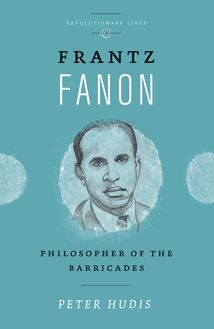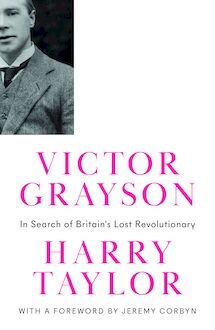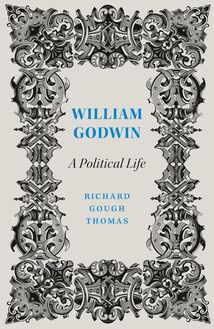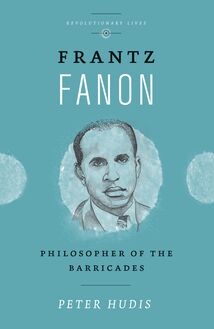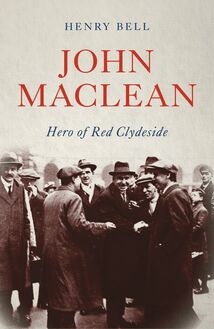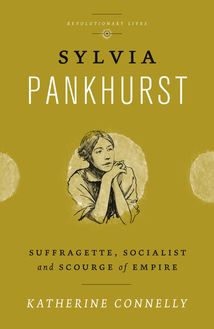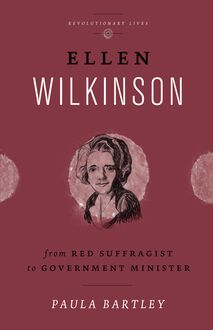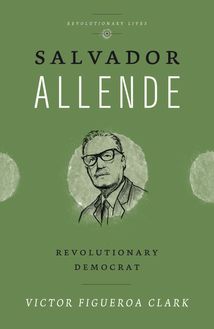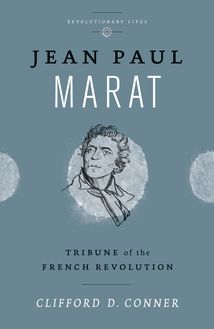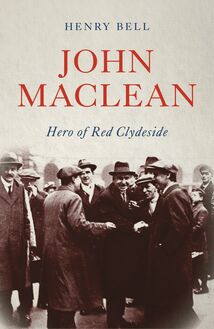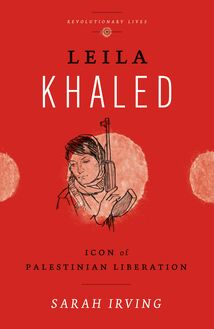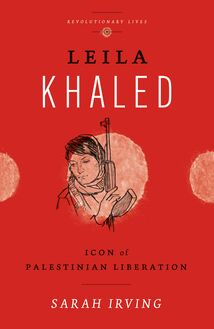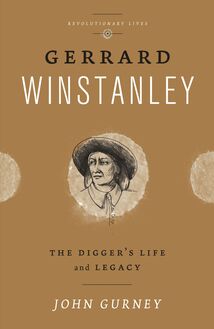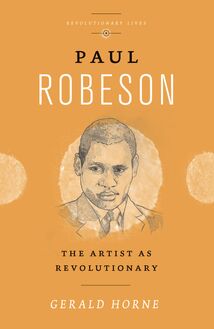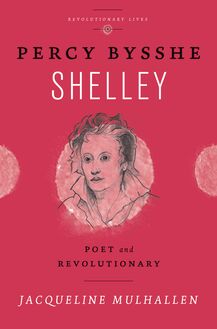-
 Univers
Univers
-
 Ebooks
Ebooks
-
 Livres audio
Livres audio
-
 Presse
Presse
-
 Podcasts
Podcasts
-
 BD
BD
-
 Documents
Documents
-
- Cours
- Révisions
- Ressources pédagogiques
- Sciences de l’éducation
- Manuels scolaires
- Langues
- Travaux de classe
- Annales de BEP
- Etudes supérieures
- Maternelle et primaire
- Fiches de lecture
- Orientation scolaire
- Méthodologie
- Corrigés de devoir
- Annales d’examens et concours
- Annales du bac
- Annales du brevet
- Rapports de stage
La lecture à portée de main
Vous pourrez modifier la taille du texte de cet ouvrage
Découvre YouScribe en t'inscrivant gratuitement
Je m'inscrisDécouvre YouScribe en t'inscrivant gratuitement
Je m'inscrisEn savoir plus
Vous pourrez modifier la taille du texte de cet ouvrage
En savoir plus

Description
Feared by the government, adored by workers, celebrated by Lenin and Trotsky; the head of British Military Intelligence called John Maclean 'the most dangerous man in Britain'.
This new biography explores the events that shaped the life of a momentous man – from the Great War and the Great Unrest, to the Rent Strike and the Russian Revolution. It examines his work as an organiser and educator, his imprisonment and hunger strike, and how he became the early hero of radical Scottish Independence.
Acknowledgements
List of Abbreviations
1. Out for Life and All That Life Can Give Us
2. Dispeller of Ignorance
3. The Revolutionary Gospel
4. The Rapids of Revolution
5. Internationalists First, Last, and All the Time
6. The War Within a War
7. Convict 2652
8. We are Going to Live to See the Day
9. Scotland's Bolshevik
10. The Accuser of Capitalism
11. Let's Kill Capitalism this Year
12. One Big Union
13. An Open Letter to Lenin
14. All Hail the Scottish Workers' Republic
15. The John Maclean March
Notes
Bibliography
Index
Sujets
Political Ideologies
Political
Historical
HISTORY
POLITICAL SCIENCE
Lettres et linguistique
Revolutions
Universidad de Glasgow
Escocia
Communism
Revolutionary
Biography
Communist Labour Party (Scotland)
Marxism
Material culture
British Socialist Party
Red Clydeside
Scottish Workers Republican Party
General officer
Ireland
Military
University of Glasgow
20th century
Revolution
Politics
History of Europe
Stephen Ireland
Great Britain
General
Autobiography
Université de Glasgow
Communisme
Scotland
Glasgow
Europe
Informations
| Publié par | Pluto Press |
| Date de parution | 20 octobre 2018 |
| Nombre de lectures | 0 |
| EAN13 | 9781786803559 |
| Langue | English |
Informations légales : prix de location à la page 0,0498€. Cette information est donnée uniquement à titre indicatif conformément à la législation en vigueur.
Extrait
John Maclean
Revolutionary Lives
Series Editors: Sarah Irving, University of Edinburgh;
Professor Paul Le Blanc, La Roche College, Pittsburgh
Revolutionary Lives is a series of short, critical biographies of radical figures from throughout history. The books are sympathetic but not sycophantic, and the intention is to present a balanced and, where necessary, critical evaluation of the individual s place in their political field, putting their actions and achievements in context and exploring issues raised by their lives, such as the use or rejection of violence, nationalism, or gender in political activism. While individuals are the subject of the books, their personal lives are dealt with lightly except insofar as they mesh with political concerns. The focus is on the contribution these revolutionaries made to history, an examination of how far they achieved their aims in improving the lives of the oppressed and exploited, and how they can continue to be an inspiration for many today.
Also available:
Salvador Allende:
Revolutionary Democrat
Victor Figueroa Clark
Hugo Ch vez:
Socialist for the Twenty-first Century
Mike Gonzalez
W.E.B. Du Bois:
Revolutionary Across the Color Line
Bill V. Mullen
Frantz Fanon
Philosopher of the Barricades
Peter Hudis
Leila Khaled:
Icon of Palestinian Liberation
Sarah Irving
Jean Paul Marat:
Tribune of the French Revolution
Clifford D. Conner
Sylvia Pankhurst:
Suffragette, Socialist and Scourge of Empire
Katherine Connelly
Paul Robeson:
A Revolutionary Life
Gerald Horne
Percy Bysshe Shelley:
Poet and Revolutionary
Jacqueline Mulhallen
Toussaint Louverture:
A Black Jacobin in the Age of Revolutions
Charles Forsdick and
Christian H gsbjerg
Ellen Wilkinson:
From Red Suffragist to Government
Minister
Paula Bartley
Gerrard Winstanley:
The Digger s Life and Legacy
John Gurney
John Maclean
Hero of Red Clydeside
Henry Bell
First published 2018 by Pluto Press
345 Archway Road, London N6 5AA
www.plutobooks.com
Copyright Henry Bell 2018
Images courtesy of National Records of Scotland, National Library of Scotland, Glasgow Caledonian University Archive Centre, Glasgow Museums, Ellice Milton and Frances Wilson. Every effort has been made to trace copyright holders and to obtain their permission for the use of copyright material in this book.
The publisher apologises for any errors or omissions in this respect and would be grateful if notified of any corrections that should be incorporated in future reprints or editions.
The right of Henry Bell to be identified as the author of this work has been asserted by him in accordance with the Copyright, Designs and Patents Act 1988.
British Library Cataloguing in Publication Data
A catalogue record for this book is available from the British Library
ISBN 978 0 7453 3839 2 Hardback
ISBN 978 0 7453 3838 5 Paperback
ISBN 978 1 7868 0354 2 PDF eBook
ISBN 978 1 7868 0356 6 Kindle eBook
ISBN 978 1 7868 0355 9 EPUB eBook
This book is printed on paper suitable for recycling and made from fully managed and sustained forest sources. Logging, pulping and manufacturing processes are expected to conform to the environmental standards of the country of origin.
Typeset by Stanford DTP Services, Northampton, England
Simultaneously printed in the United Kingdom and United States of America
For Livi, my favourite socialist schoolteacher
Contents
Acknowledgements
List of Abbreviations
1. Out for Life and All That Life Can Give Us
2. Dispeller of Ignorance
3. The Revolutionary Gospel
4. The Rapids of Revolution
5. Internationalists First, Last, and All the Time
6. The War Within a War
7. Convict 2652
8. We are Going to Live to See the Day
9. Scotland s Bolshevik
10. The Accuser of Capitalism
11. Let s Kill Capitalism This Year
12. One Big Union
13. An Open Letter to Lenin
14. All Hail the Scottish Workers Republic
15. The John Maclean March
Notes
Bibliography
Index
Acknowledgements
I am extremely grateful to Katie Reid at Glasgow Women s Library, Barbara Neilson at the Mitchell Library, Carole McCallum at Glasgow Caledonian University Library, Thijs van Leeuwen at the International Institute of Social History, Fiona Hayes at the Glasgow Museums Resource Centre, Audrey Canning at the Willie Gallacher Memorial Library, and a great many people at the Scottish National Library, The National Archives, The National Records of Scotland, the Irish Military Archives, the Russian Embassy, Glasgow University Library, Stirling University Library, Strathclyde University Library, University of Warwick Archive, The People s Palace, The Marx Memorial Library, The Working Class Movement Library, and the Marxist Internet Archive, as well as for notes and support from Ewan Gibbs, Christopher Silver, Nick Bell, Fiona Brook, Robbie Guillory, Livi Crook, Jonathon Shafi, Tessa Cook, Kate Tough, Joey Simon, Dominic O Hara, Harry Josephine Giles, Julia Taudevin, Rory Scothorne, Katy Hastie, Willy Maley, Sarah Irving, David Castle, Sara Shaarawi, Heather Mclean, Tom Coles, Jim Monaghan, John Foster, Alec Finlay, Dot Reid, John Couzin, Liz Lochhead, Hassan Abdulrazzak, Kevin Morgan, Scott Reeves, Donald Anderson, Gerry Cairns, Poppy Kohner, Fiona Jack, Rebecca Dewald, Svenja Meyerricks, Eddi Reader, Stephen Coyle, Josie Long, Christian Hogsbjerg, Kate Macleary, Sean Anderson, Craig Smillie, James Crisp, Mark Hesling, and John Maclean s grandchildren; Ellice Milton, Denis Maclean Wilson and Frances Maclean Wilson.
An excerpt from Freedom Come All Ye by Hamish Henderson appears courtesy of the Henderson family, excerpts from Don t Sign Up for War and Mrs Barbour s Army by Alistair Hulett appear courtesy of the Alistair Hulett Memorial Trust, excerpts of poems by Sorley Maclean, Edwin Morgan and Hugh MacDiarmid appear courtesy of Carcanet Press.
List of Abbreviations
BSP - British Socialist Party
CLP - Communist Labour Party
Comintern - The Third Communist International, founded by Lenin in 1919
CP (BSTI) - Communist Party (British Section of the Third International)
CPGB - Communist Party of Great Britain
CWC - Clyde Workers Committee
EIS - Educational Institute of Scotland
ILP - Independent Labour Party
IWW - Industrial Workers of the World
SDF - Social Democratic Federation
SLP - Socialist Labour Party
SNP - Scottish National Party
STUC - Scottish Trade Union Congress
SWRP - Scotish Workers Republican Party
1
Out for Life and All That Life Can Give Us
John Maclean died on St Andrew s Day, 30 November 1923, at the age of just 44. Three days later, below the sandstone tenements of Eglington Toll on the Southside of Glasgow, more than 5,000 people gathered to begin the three-mile march to Eastwood Cemetery where he would be laid to rest. The Clyde Workers Band marched in front, playing socialist anthems, and Handel s March of Saul . 1 Some of the most famous socialists, communists, Labour MPs, suffragettes and trade unionists Scotland and the wider British Isles have ever produced greeted each other in the cold, and followed the silver band across South Glasgow. Glasgow s many unemployed men and women, as well as miners, teachers and shipyard workers held up banners and marched in silence. 2 Only the sound of their feet striking cobbles and tram tracks, and the strains of the band, rang out across the city.
As they passed through the streets of Govanhill, Pollokshields and Pollokshaws, black and red flags flapped from tenement windows and the pavements heaved with Glaswegians paying their respects. By the time the procession reached Maclean s home in Auldhouse Road, some estimates put the crowd at 20,000. 3 Along with the hearse and carriages, a horse-drawn cart carried a camera crew to capture the event. Soon the mass funeral march would be screened in cinemas across the west of Scotland, and shown on the anniversary of his death each year. To this day, the funeral of John Maclean, Britain s foremost Marxist revolutionary, remains the largest that Glasgow has ever seen. Tributes poured in from across the political spectrum. Obituaries were carried in Swedish, Russian and French, as well as British and Irish papers. Streets were named after him in Soviet cities, and Maclean was memorialised as an icon of Communism in the USSR right up until its collapse. 4 His coffin, draped in a red flag, was lowered into the ground as the huge crowd sang A Rebel Song and The Internationale . 5
Despite the collective camaraderie of the marching men and women that day, divisions over Maclean s life were already long established. For the two years prior to his death, Maclean was disregarded by many as a political outsider; rejected by large parts of the Communist movement, estranged from his wife and family, and reported to be insane by both the secret police and those members of the left that rejected his increasingly Republican and Celtic Communist views. Over the coming century, Maclean would be alternately claimed and slandered by communists, liberals and nationalists - and charges of madness and foolish nationalism would come to stand alongside a mythology of John Maclean as a lost Scottish Lenin.
Without doubt, the punishment Maclean received in Scottish jails and his early death helped to enshrine him as a Marxist saint. He is remembered still as the revolutionary teacher whose vast classes, Labour College and speeches made sure that Marxist analysis took root in the slums of Glasgow and the coalfields of Fife and Lanarkshire - a man in many ways responsible for the self-conception of Glasgow, and by extension Scotland, as radical and red . In the 18 years from Maclean joining the socialist movement to his release from jail at the end of the First World War, the Scottish Radical Left was transformed from the fringe eccentricity of a few hundred people, to a force that could muster 100,000 workers to cheer on the Russian, German and British Revolutions.
How
-
 Univers
Univers
-
 Ebooks
Ebooks
-
 Livres audio
Livres audio
-
 Presse
Presse
-
 Podcasts
Podcasts
-
 BD
BD
-
 Documents
Documents
-
Jeunesse
-
Littérature
-
Ressources professionnelles
-
Santé et bien-être
-
Savoirs
-
Education
-
Loisirs et hobbies
-
Art, musique et cinéma
-
Actualité et débat de société
-
Jeunesse
-
Littérature
-
Ressources professionnelles
-
Santé et bien-être
-
Savoirs
-
Education
-
Loisirs et hobbies
-
Art, musique et cinéma
-
Actualité et débat de société
-
Actualités
-
Lifestyle
-
Presse jeunesse
-
Presse professionnelle
-
Pratique
-
Presse sportive
-
Presse internationale
-
Culture & Médias
-
Action et Aventures
-
Science-fiction et Fantasy
-
Société
-
Jeunesse
-
Littérature
-
Ressources professionnelles
-
Santé et bien-être
-
Savoirs
-
Education
-
Loisirs et hobbies
-
Art, musique et cinéma
-
Actualité et débat de société
- Cours
- Révisions
- Ressources pédagogiques
- Sciences de l’éducation
- Manuels scolaires
- Langues
- Travaux de classe
- Annales de BEP
- Etudes supérieures
- Maternelle et primaire
- Fiches de lecture
- Orientation scolaire
- Méthodologie
- Corrigés de devoir
- Annales d’examens et concours
- Annales du bac
- Annales du brevet
- Rapports de stage
